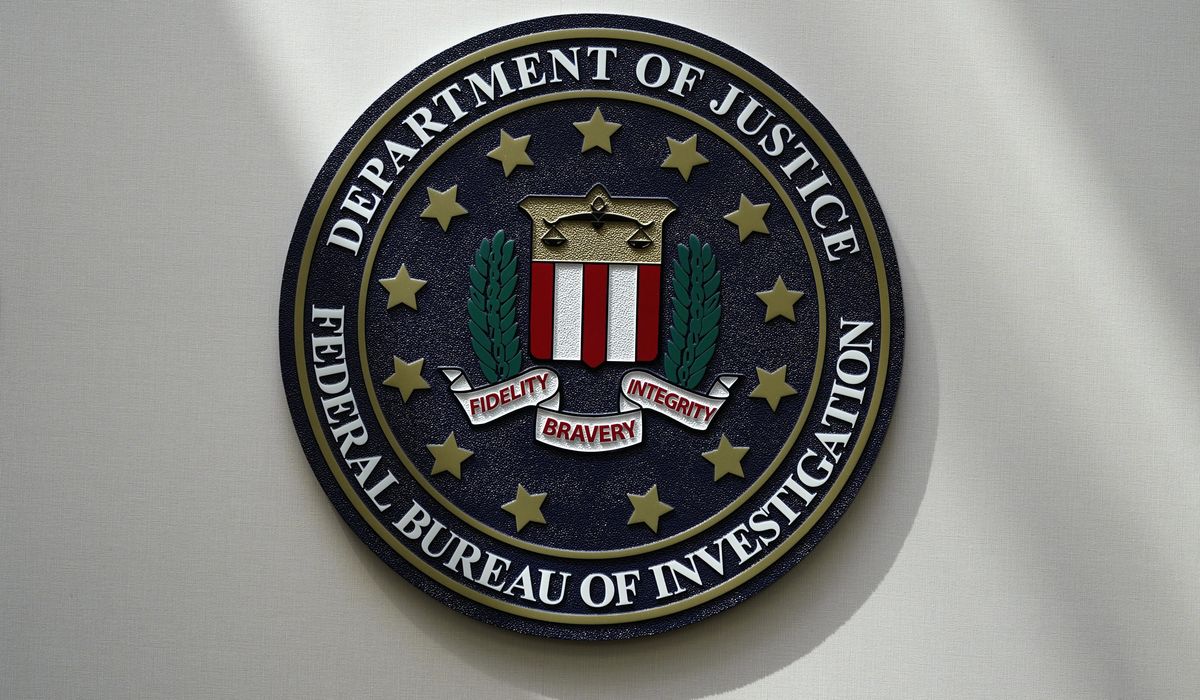


An influential coalition of liberal and conservative lawmakers said Tuesday that they would try to block the renewal of the government’s chief spying tool unless the intelligence agencies agree to new rules requiring warrants before peering into Americans’ communications.
Section 702 of the Foreign Intelligence Surveillance Act, which allows the government to scoop up massive amounts of data in the quest to root out international criminals and terrorists, will expire at the end of December unless Congress extends it.
The lawmakers, a striking mix of Democrats and Republicans from the House and Senate, said the government should have the powerful tool, but only if the intelligence agencies admit they have been abusing the program and accept new limits on their ability to dig into the data.
“It’s time for a trade,” said Sen. Mike Lee, Utah Republican. “We will vote to reauthorize [the law], but only with rules that will make Uncle Sam get a warrant before entering our digital domains.”
The proposal would still allow the government to collect massive amounts of information, but agencies wanting to probe data of Americans would have to obtain warrants or show urgent circumstances, such as a hostage situation or imminent threat of death.
Agencies would be barred from trying to circumvent the warrant requirement by buying the data from a third-party vendor. The legislation would specifically bar the government from intentionally targeting an American living overseas and would bolster the adversarial process for testing FISA in the secret court charged with overseeing the program.
Section 702, which authorizes the collection and use of the data, would be extended for four more years.
Sen. Ron Wyden, Oregon Democrat and the bill’s chief sponsor, said the measure would restore a balance lost in the digital era, particularly over the decades since the 2001 terrorist attacks and passage of the Patriot Act.
“Americans understand that it’s possible to confront our countries’ adversaries ferociously without throwing our constitutional rights into the garbage can, but for too long, the surveillance laws haven’t kept up with changing times,” Mr. Wyden said.
The Washington Times has reached out to the Office of the Director of National Intelligence for this report.
As envisioned, Section 702 scoops data and allows U.S. agencies to store it. The CIA, FBI or National Security Agency can query the data as they investigate foreign people outside the U.S.
The agencies are not supposed to target U.S. citizens, but queries sometimes scoop up data from Americans’ communications.
Top intelligence community officials have said they would be willing to have Congress make some changes, such as writing into law the updates that the FBI says it has made on its own.
They have vehemently objected to too much tinkering. Whatever the flaws, they say, the program delivers incredible results.
The Justice Department told Congress this summer that Section 702 data collection and use have disrupted assassination plots, stopped kidnappers and allowed the FBI to defeat computer ransomware attacks and track terrorists.
The NSA says about 60% of the items in the president’s daily intelligence briefing can be traced back to communications scooped up thanks to Section 702. The CIA said nearly 40% of the articles in its daily intelligence review contain data derived from 702 collections.
The most pointed argument that backers make is about the battle against fentanyl. Intelligence agency officials said they can track cartels that manufacture and smuggle the deadly opioid, but only if they can snoop through 702 collections.
Reports of FISA abuses trickle out with alarming frequency.
Earlier this year, reports said the FBI used its data tool to snoop on donors to a congressional campaign, people arrested at protests in the summer of 2020 after the death of George Floyd, people thought to be implicated in the election protests at the Capitol on Jan. 6, 2021, and even crime victims.
The FBI said it had fixed the problems, but lawmakers said those assurances rang hollow.
“The only thing the FBI seems eager to fix is getting caught,” Mr. Lee said.
Rep. Zoe Lofgren, California Democrat, said the problems occurred under Democratic and Republican administrations and the solution offered Tuesday had backing across the political spectrum. She stood shoulder to shoulder with Rep. Andy Biggs, an Arizona Republican with whom she clashes on most other significant ideological issues.
Also backing the bill are liberal icons such as Sen. Elizabeth Warren, Massachusetts Democrat, and Rep. Barbara Lee, California Democrat, and staunch conservatives such as Rep. Thomas Massie, Kentucky Republican, and Sen. Steve Daines, Montana Republican.
The congressional unity was matched by the list of outside groups backing the proposal.
They include the American Civil Liberties Union and Demand Progress from the left and Americans for Prosperity from the right. Also on board are digital-focused groups such as the Electronic Privacy Information Center.
The left-right coalition could hold key ground in the battle over the law’s fate. Some lawmakers would probably prefer to end Section 702, but a larger group is willing to give the government more leeway. Depending on the size of the two camps, the coalition Tuesday could be the majority-makers.
• Stephen Dinan can be reached at sdinan@washingtontimes.com.
